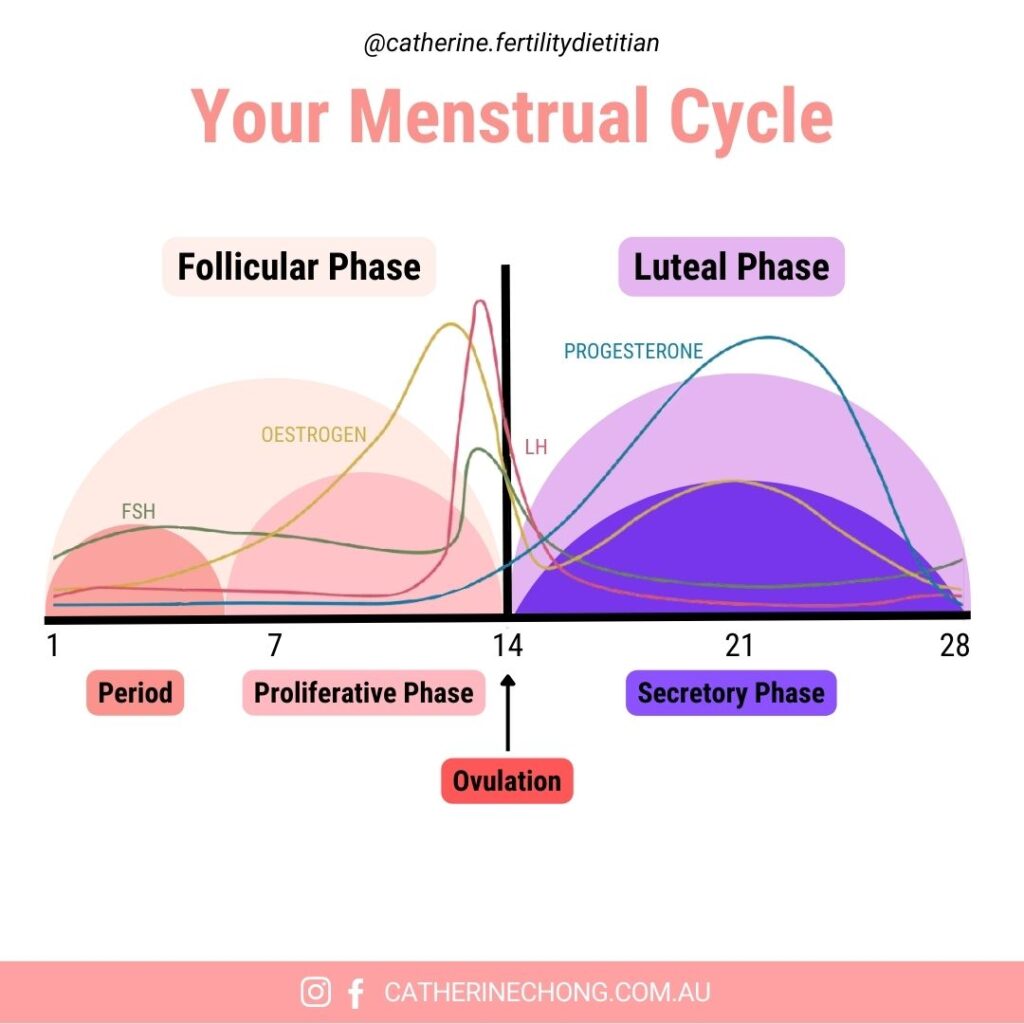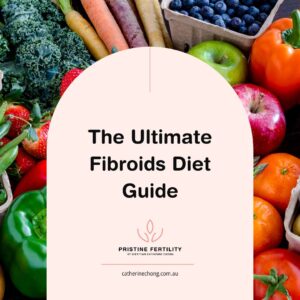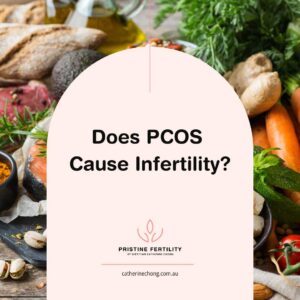Navigating Low Progesterone Through Dietary Interventions
Did you know progesterone level also plays a fundamental role when trying to conceive? In this blog post, we’ll discuss progesterone’s role in supporting pregnancy and share the three dietary tips that may help boost the progesterone level.
Understanding Progesterone’s Role

Consider progesterone as an unsung hero within your body, quietly working in the background, particularly during the latter half of your menstrual cycle.
During this time, progesterone diligently prepares your uterus for a potential pregnancy. It accomplishes this by facilitating the thickening of your endometrial lining, thus creating a hospitable and nutrient-rich environment for a fertilised egg to implant and thrive.
Early in your pregnancy, your ovaries are responsible for producing progesterone, taking the lead for about the first ten weeks, after which the placenta steps in, continuing the crucial task for the remainder of the pregnancy.
However, if you’ve got a low progesterone level, several issues might arise, such as:
- Menstrual Irregularities: If progesterone is insufficient, your menstrual cycle may become irregular – periods might become sporadic, unusually heavy, or you may even experience skipped cycles.
- Miscarriage and Early Labour: Low progesterone can compromise the maintenance of pregnancy, potentially resulting in unfortunate outcomes such as miscarriages or premature labour.
- Decreased Fertility: Lower progesterone levels may also adversely affect your ability to conceive, making pregnancy more challenging.
If you suspect you may have low progesterone levels, you must consult a medical professional for a proper medical evaluation and guidance.
Tip 1: Zinc An Essential Nutrient Bolstering Progesterone Level
Zinc is a critical player in your body that boosts ovulation and fertilisation – vital processes in your conception journey. This invaluable nutrient synthesises proteins and DNA, forming the building blocks of cells and regulating hormones, including estrogen and progesterone.
Maintaining sufficient zinc levels is pivotal for a successful pregnancy. Falling short on zinc may bring about several risks, including pregnancy loss, premature birth, birth defects, and preeclampsia.
Oysters, sun-dried tomatoes, red meats like lamb and beef, tahini, and cashew nuts are excellent sources of zinc. However, if you’re following a diet low in zinc, such as a vegetarian diet, a zinc supplement may be considered in some cases. Always consult a professional before starting any supplementation.
Tip 2: Exploring the Potential of Vitamin C

Vitamin C, a nutrient renowned for its immune-boosting properties, may also hold promise for those facing challenges with low progesterone. Research suggests it might be supportive, particularly in women with luteal phase defects.
These occur when the corpus luteum, a crucial structure in ovulation, doesn’t produce an optimal amount of progesterone, which can lead to miscarriage and pregnancy loss. The antioxidant properties of Vitamin C are thought to play a significant role in its positive effects on progesterone levels.
Vegetables such as capsicum, broccoli, watercress, arugula, and Brussels sprouts are loaded with this essential nutrient to boost your vitamin C intake. Additionally, fruits like pawpaw or papaya, oranges, strawberries, custard apples, and pineapples are excellent choices.
Tip 3: Selenium – A Potential Ally in Progesterone Production
Emerging research proposes that dietary selenium might be influential in enhancing progesterone levels, potentially promoting fertility.
Adequate selenium intake has been associated with a lower likelihood of luteal phase defects. However, further research is still needed to fully understand the extent of selenium’s impact on progesterone and fertility.
While selenium might be beneficial, caution is advised in its consumption. Going overboard could be detrimental to health. For example, Brazil nuts pack a high selenium punch; even a few nuts could surpass the recommended daily upper limit. Other rich sources of selenium include sardines, mussels, whiting, canned tuna, chickpeas, and chicken egg yolks.
It’s always a good idea to consult a fertility dietitian before making significant changes to your diet to ensure a balanced and safe intake of all nutrients.
Beyond Diet: Lifestyle Factors Impacting Progesterone Levels
In addition to dietary changes, other lifestyle factors can influence your progesterone levels. Maintaining healthy body weight, managing stress levels, and avoiding excessive exercise are essential lifestyle factors supporting healthy progesterone levels while trying to conceive. These lifestyle modifications work hand in hand with dietary adjustments to optimise your chances of getting pregnant.
Bottom Line:
- Progesterone is vital for preparing the uterus for pregnancy. If its levels are low, it could cause menstrual irregularities, early labour, miscarriage, and reduced fertility.
- Zinc is a nutrient essential for ovulation and fertilisation, zinc could be particularly beneficial for those with low progesterone levels.
- Vitamin C might support increased progesterone levels, which is particularly beneficial in cases of luteal phase defects.
- Preliminary research indicates selenium might help enhance progesterone levels and fertility. However, caution is advised to avoid excessive intake.
Need More Help?
Are you seeking additional support and guidance in optimising your fertility through a personalised nutrition plan?
Schedule a nutrition consultation today and take the first step towards achieving your fertility goals.
You May Also Be Interested In
Disclaimer: Content on this website is provided for information purposes only and should not be replaced with medical advice. We recommend you discuss with your healthcare providers (doctor, dietitian, pharmacist, etc.) any medical questions for diagnosis and treatment, dietary plan, or use of any medications and nutritional supplements before you make any changes. DietitianChong Pty Ltd shall not bear any liability for reliance by any user on the materials contained on this website.







